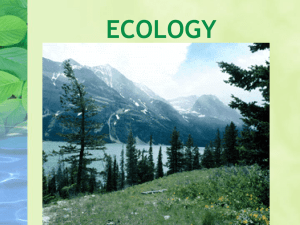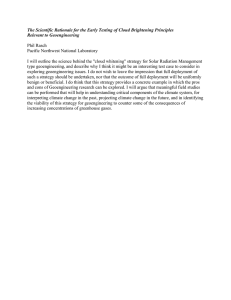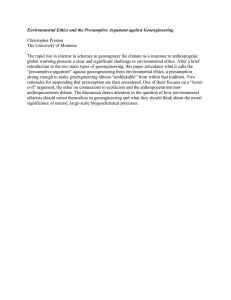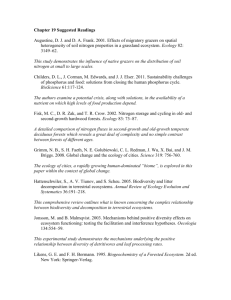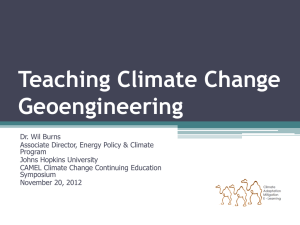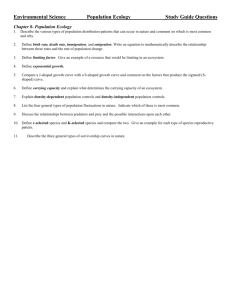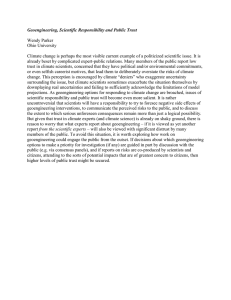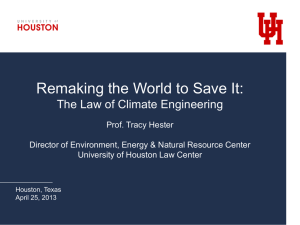1.018 – 7.30J Handout 2009 E
advertisement
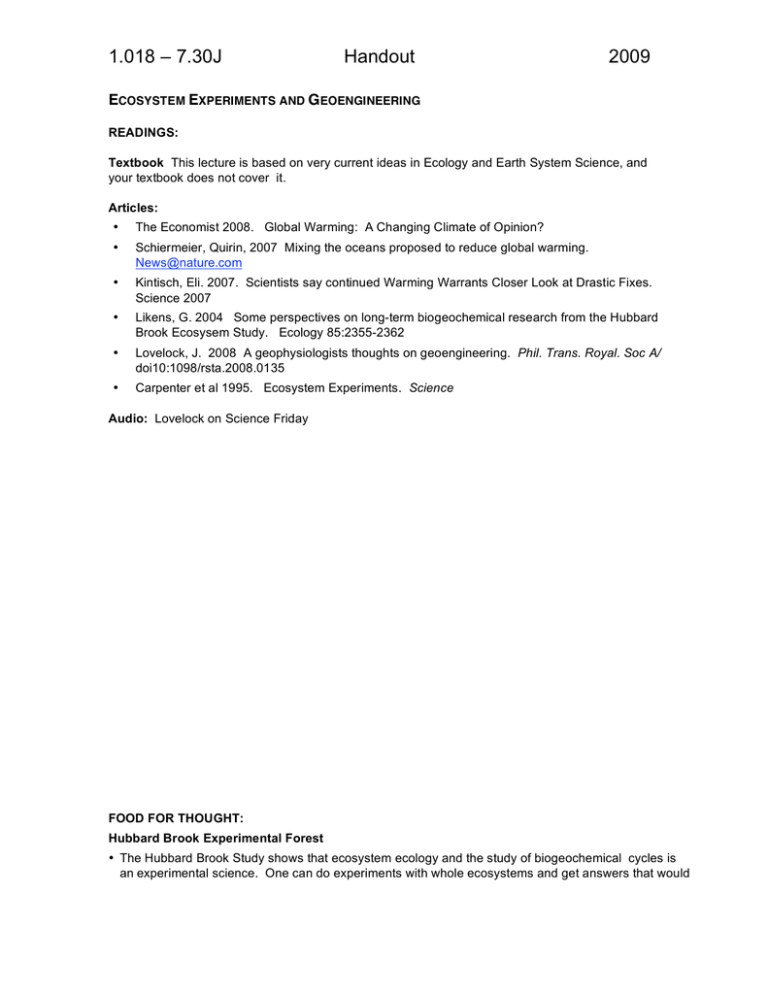
1.018 – 7.30J Handout 2009 ECOSYSTEM EXPERIMENTS AND GEOENGINEERING READINGS: Textbook This lecture is based on very current ideas in Ecology and Earth System Science, and your textbook does not cover it. Articles: • The Economist 2008. Global Warming: A Changing Climate of Opinion? • Schiermeier, Quirin, 2007 Mixing the oceans proposed to reduce global warming. News@nature.com • Kintisch, Eli. 2007. Scientists say continued Warming Warrants Closer Look at Drastic Fixes. Science 2007 • Likens, G. 2004 Some perspectives on long-term biogeochemical research from the Hubbard Brook Ecosysem Study. Ecology 85:2355-2362 • Lovelock, J. 2008 A geophysiologists thoughts on geoengineering. Phil. Trans. Royal. Soc A/ doi10:1098/rsta.2008.0135 • Carpenter et al 1995. Ecosystem Experiments. Science Audio: Lovelock on Science Friday FOOD FOR THOUGHT: Hubbard Brook Experimental Forest • The Hubbard Brook Study shows that ecosystem ecology and the study of biogeochemical cycles is an experimental science. One can do experiments with whole ecosystems and get answers that would be very difficult, if not impossible, to predict using reductionist modes of inquiry. What fundamental property of the Hubbard Brook ecosystem made this study possible? • What were the major changes in the chemical composition of the stream coming out of the clearcut watershed relative to the control? • What microbial processes played a key role in these changes? What strictly chemical processes? • Through what mechanisms can a cutover watershed become a source of atmospheric N2O? • What is cation exchange capacity and how does it relate to the effects of acid rain? Geoengineering and Ocean Fertilization • Humans are transforming the Earth on a global scale, eg. Increase in CO2 in our atmosphere, loss of nutrients in our soils, changes in the global water cycle, etc. Is this Geoengineering? Why or why not? • Why did John Martin suspect that iron was limiting phytoplankton growth in the equatorial Pacific? • Why did this suddenly make an ocean fertilization experiment feasible? Why didn’t people think about this before? (think Redfield Ratios). • What biogeochemical cycles would be affected by large scale Ocean Fertilization? MIT OpenCourseWare http://ocw.mit.edu 1.018J / 7.30J Ecology I: The Earth Fall 2009 For information about citing these materials or our Terms of Use, visit: http://ocw.mit.edu/terms.
